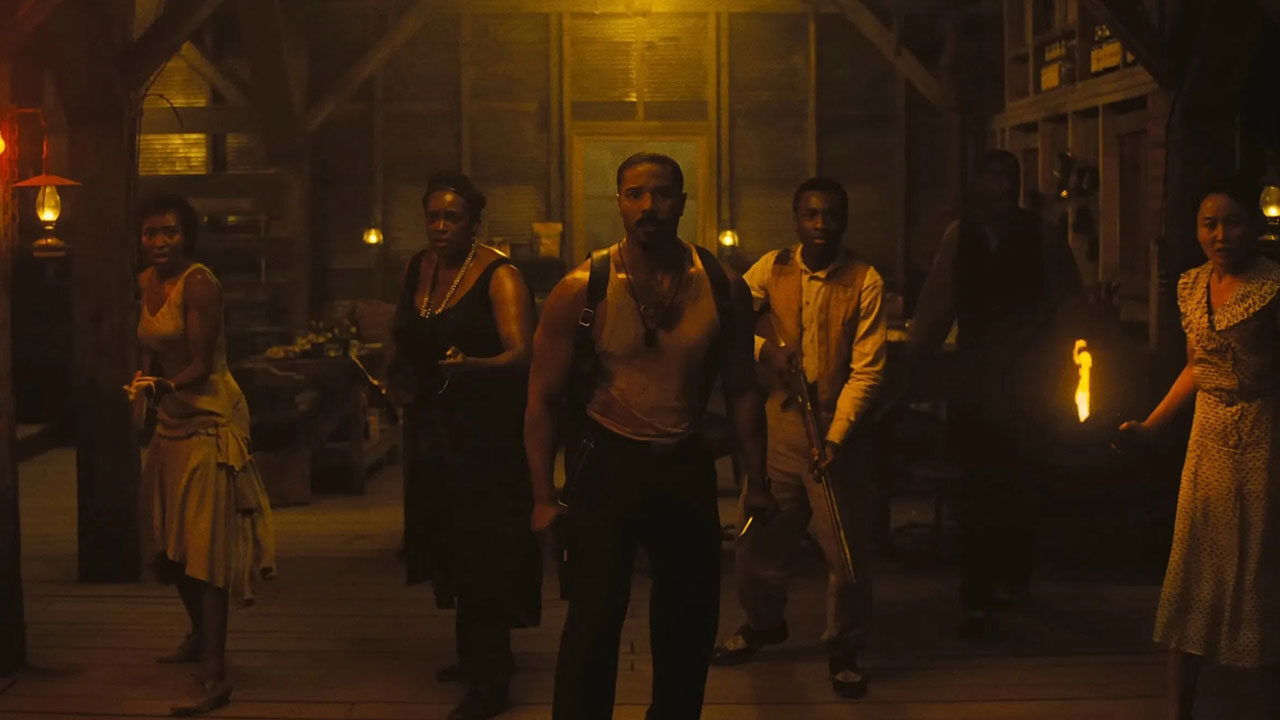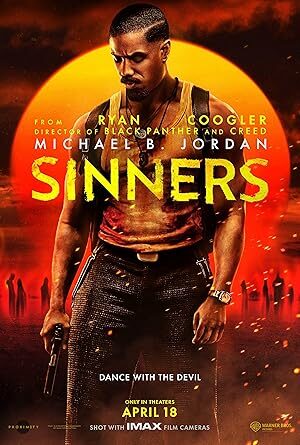Over the last 12 years, since director Ryan Coogler burst on the scene with indie drama Fruitvale Station, he has quickly become a director whose name is synonymous with delivering character-driven blockbusters. Still, between Creed and the two Black Panther films, it’s always been on the back of pre-existing IP– or in Fruitvale’s case, a real-life event. Enter Sinners, his first completely original blockbuster, and a genre-bending hybrid that takes a litany of ideas and influences and coalesces them together into what is easily the best blockbuster of the year.
The year is 1932. Jim Crow laws are in full effect across the South. Set over the course of a single day in Clarksdale, Mississippi, Sinners follows twin brothers Smoke and Stack (both played by Michael B. Jordan), World War I veterans-turned-gangsters returning home after a stint in Chicago working for Al Capone. The twins have purchased an abandoned farm and have decided to turn it into a “juke joint”, a refuge for Black people to drink, dance and gamble freely.
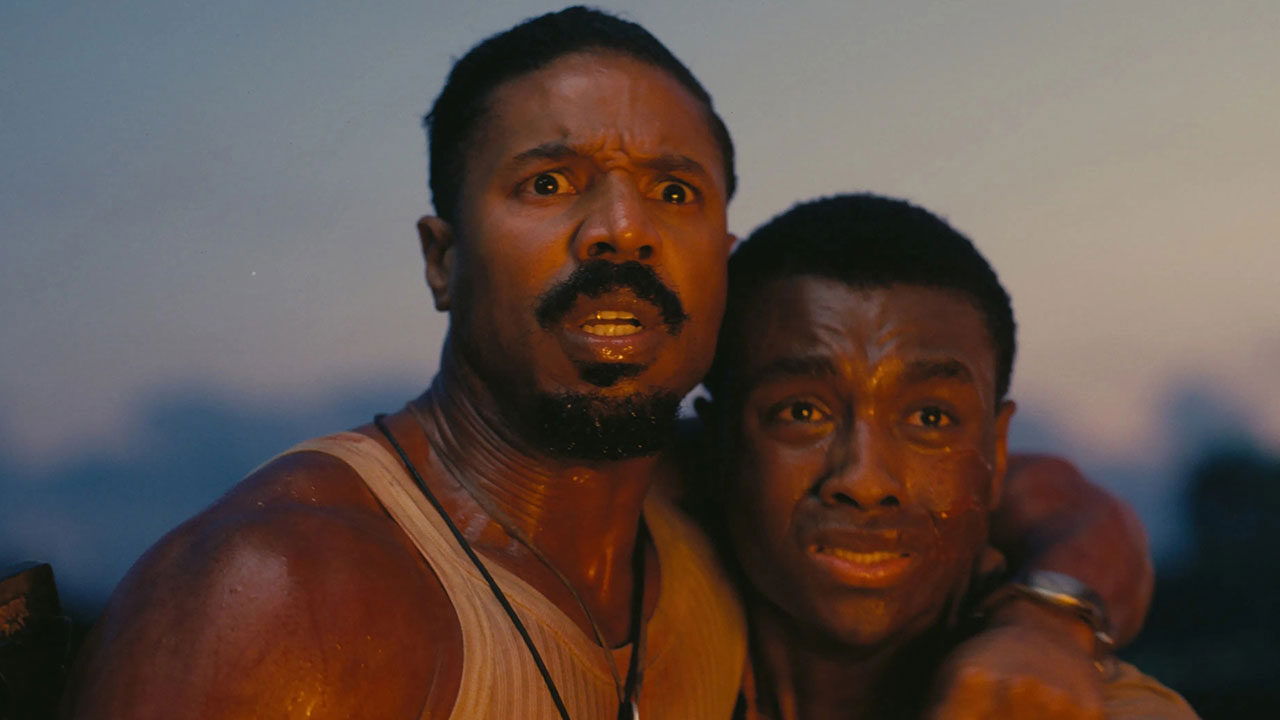
They assemble a motley crew of old associates to join the staff, namely alcoholic harmonica player Delta Slim (Delroy Lindo), Chinese-American shopkeepers Bo and Grace Chow (Yao and Li Jun Li, respectively), bouncer and family man Cornbread (Omar Miller) and most notably, the twins’ cousin “Preacher Boy” Sammie (Miles Caton), the son of the town’s pastor and a musical prodigy. However, as night falls and the party rolls along, Sammie’s gifts attract the attention of a great evil in the form of a trio of vampires.
“The true story at the heart of Sinners is one of Black liberation through music.”
Now, that’s the simplest way to describe the general premise, but there is so much more going on beneath the surface than just a Southern variant of From Dusk till Dawn. In fact, just like the Tarantino/Rodriguez film, the bloodbath doesn’t happen until much, much later. The true story at the heart of Sinners is one of Black liberation through music. The ability to express simultaneous pain and joy during times of trauma and oppression has been a defining aspect of Black music throughout history, from rock and roll to hip-hop, and especially in blues music.
However, in the case of Sinners, Coogler imagines a world where the power of that music can be a literal portal through time itself, best exemplified in a jaw-dropping musical sequence that ties together the lineage of Black music past, present, and future, leaving me on the brink of tears. Coogler imbues the same spirit of resilience across each of Sinners‘ characters; all of whom feel fully realized thanks to his script, as well as incredible performances from the entire cast.
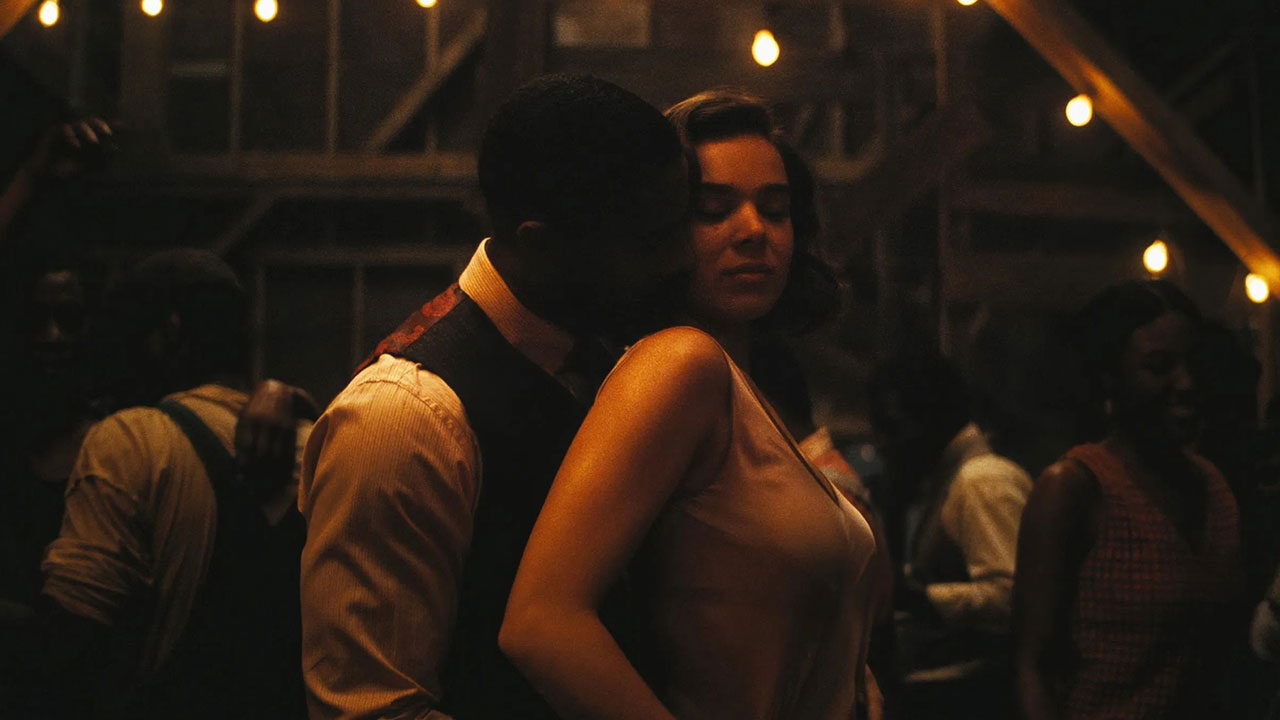
Coogler’s longtime collaborator, Michael B. Jordan, delivers a career-best double performance, with both siblings exhibiting subtle yet distinct differences that still make them stand out as individuals. Whereas blue-clad Smoke is the cooler, stoic half, Stacks is flashy, as evidenced by his red suit.
“The word ‘visionary’ is thrown around a lot these days, but Sinners allows Ryan Coogler to stake that claim for himself fully.”
As far as the rest of the ensemble, Wunmi Mosaku and Hailee Steinfeld are both excellent as the loves the twins originally left behind, each displaying vastly different histories and dynamics with each sibling. The always-reliable Delroy Lindo provides great comic relief as Delta Slim, but the little bit he lets on about his traumatic past speaks volumes . Sinners‘ biggest surprise comes courtesy of newcomer Miles Caton, whom I was surprised to learn was his first-ever acting performance. It’s an instantly star-making turn, and that’s partially due to his show-stopping vocals.
When Sinners eventually jumps into its second half, it turns from character drama to an all-out vampire siege film in the vein of early John Carpenter. The action is thrilling, the scares are effective, and the gore is positively goopy. Autumn Durald Arkapaw’s cinematography pops off the screen, especially in IMAX, where the aspect ratio will expand during specific sequences.
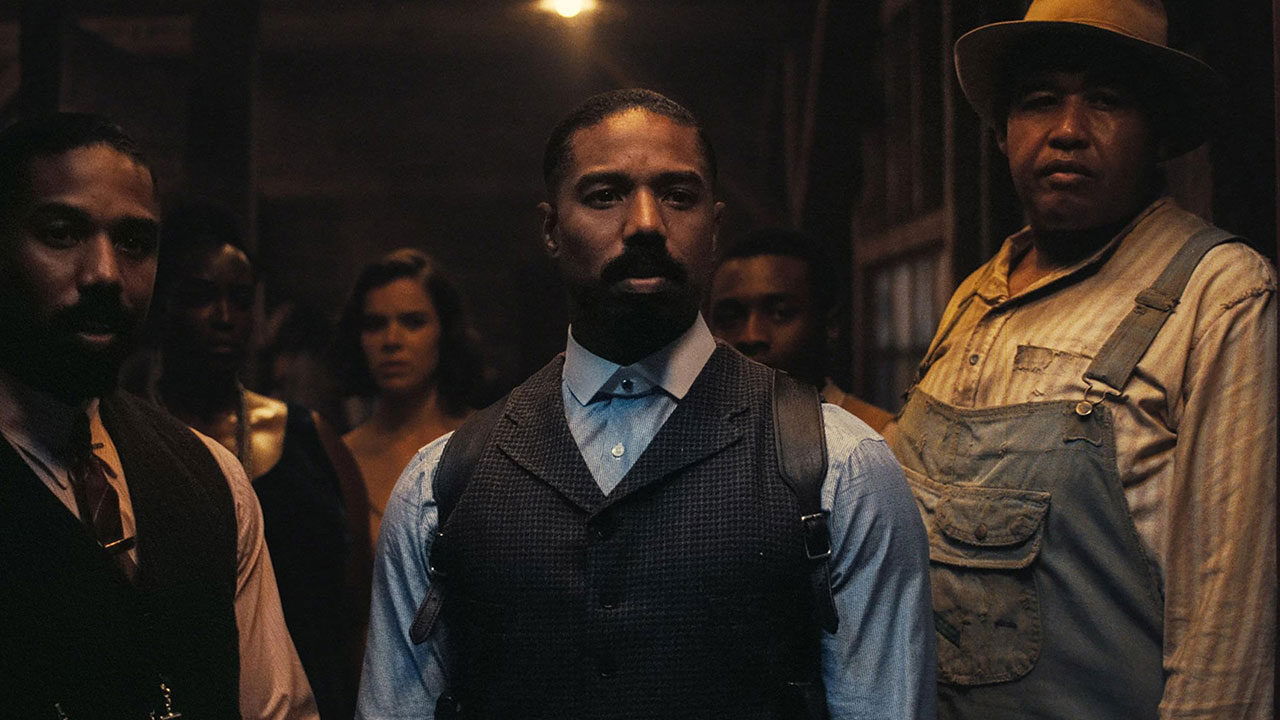
Even when things go to hell and the blood is flying, the film doesn’t lose a bit of Sinners’ previous thematic resonance. The vampires themselves are a representation of cultural appropriation. In a swaggering performance from Jack O’Connell, lead vampire Remmick promises riches and racial prosperity but demands assimilation, all with a blood-soaked smile and glowing red eyes. He craves Sammie’s supernatural gifts, but lacks the genuine spirit to summon them himself.
The word “visionary” is thrown around a lot these days, but Sinners allows Ryan Coogler to stake that claim for himself fully. Even with the variety of influences, it’s a film that feels uniquely his, striking a balance between poignance and thrills in equal measure. If you happen to live near an IMAX theatre (or even luckier, near one of the 10 theatres in the world playing it in IMAX 70MM film), it’s more than worth the price of admission. It’s rare that we get blockbusters this good, and I hope it’s not too long for Coogler to bring another one.
